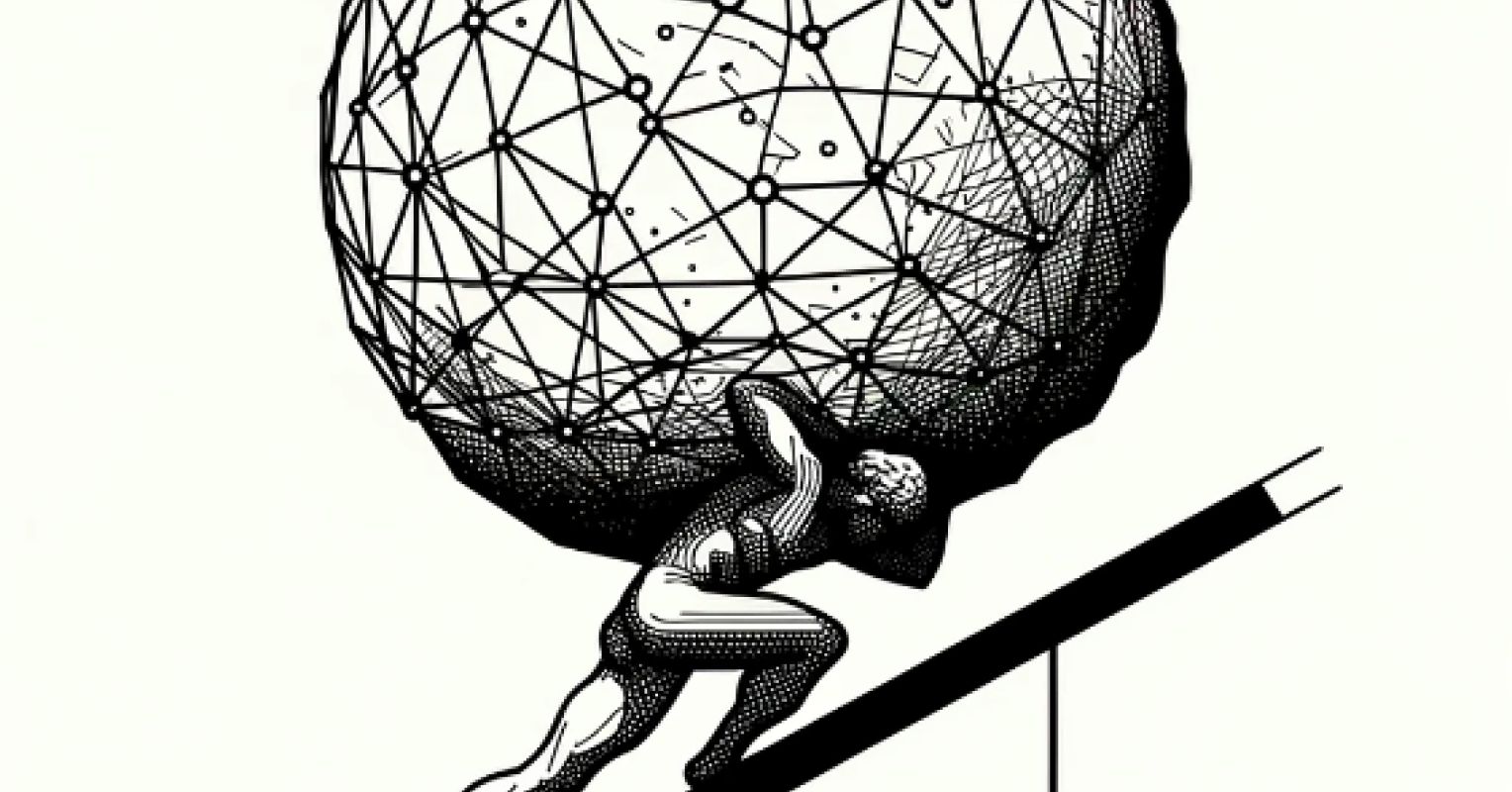Today, we stand at a distinctive crossroads where technological advancements intersect with profound existential inquiries. Albert Camus’s reinterpretation of the Sisyphus myth offers intriguing perspectives on this juncture, prompting us to reflect on the core of our technological pursuits and the inherent absurdities they may encompass. Let’s embark on the uphill journey…
Revisiting a Legendary Tale
Central to Camus’s exploration of the absurd is the myth of Sisyphus, a character condemned to endlessly push a boulder uphill, only to witness it roll back down, perpetuating this cycle indefinitely. This eternal punishment symbolizes life’s intrinsic absurdity, portraying humanity’s struggle against the universe’s apathy. Despite this, Camus finds a rebellious sense of solace in Sisyphus’s predicament, suggesting that by consciously embracing his futile task, Sisyphus achieves a form of existential triumph.
AI: The Modern Sisyphus of Humanity
The endeavor to advance artificial intelligence mirrors the Sisyphean challenge. As we strive to develop machines that emulate human intellect, we are essentially propelling a technological boulder up the arduous slope of innovation. Each breakthrough in AI propels us nearer to the peak; however, the ultimate objective of creating a genuinely sentient entity remains elusive, with the boulder rolling back as fresh obstacles and ethical quandaries emerge.
This relentless pursuit, akin to Sisyphus’s perpetual labor, may appear absurd when viewed through Camus’s perspective. The cosmos remains indifferent to our accomplishments, and as we delve deeper into the complexities of consciousness, we encounter the vast expanses of the unknown.
The Absurdity of AI and Human Existence
Yet, within this very absurdity lies the magnificence of human endeavor. Just as Camus posits that Sisyphus discovers significance in his ordeal, we too can find purpose and satisfaction in the intricate interplay of creation and comprehension with AI. The process of learning, adapting, and evolving alongside our innovations mirrors our existential odyssey—a testament to our resilience and inventiveness in the face of the universe’s profound detachment.
Furthermore, AI acts as a mirror, reflecting our deepest anxieties, aspirations, and unyielding pursuit of meaning. In our efforts to instill human-like intelligence and autonomy in machines, we are essentially striving to comprehend ourselves. Each algorithm and neural network serves as a verse in the broader narrative of human existence, a story continually reshaped as we push the boundaries of possibility.
Discovering Significance Amidst the Absurd
Just as Camus urges us to envision Sisyphus content, we too can find fulfillment in the cyclical voyage of AI advancement. The joy does not lie in attaining the ultimate pinnacle of success but in the expedition itself—the instances of revelation, the excitement of innovation, and the profound bonds we establish with our creations and with one another.
In this context, the convergence of AI and humanity transcends mere creation of intelligent machines. It evolves into a vibrant arena for delving into the depths of human creativity, the extents of our comprehension, and, ultimately, the core of human existence in an increasingly digital era.
A Framework for Contemplation
It appears that with every technological stride forward comes a philosophical shadow that never dissipates. At this intersection of AI and existential philosophy, the myth of Sisyphus provides a framework for contemplation. It serves as a reminder that amidst life’s inherent absurdities, our greatest victory lies in embracing the journey, discovering meaning in the strife, and, perhaps, learning to derive happiness from the ceaseless pursuit of comprehending and replicating intelligence. In this grand, Sisyphean endeavor of AI progression, we may unearth profound insights into our own existence—the unyielding human spirit that persistently propels us on our eternal voyage.










